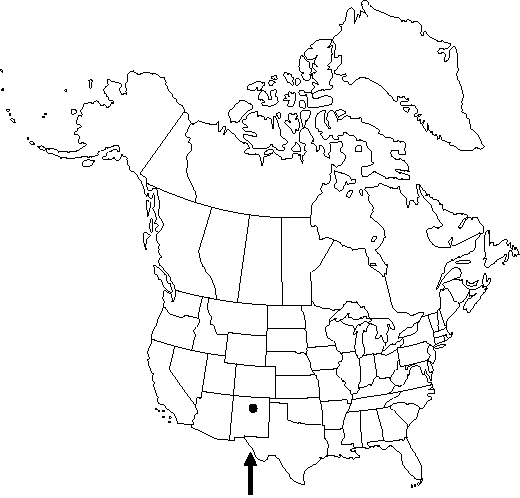Delphinium sapellonis
Bot. Gaz. 34: 453. 1902.
Stems (50-)100-180(-220) cm; base sometimes reddish, glabrous sometimes glaucous. Leaves cauline, 10-20, absent from proximal 1/5 of stem at anthesis; petiole 5-12 cm. Leaf blade round to pentagonal, 6-10 × 8-16 cm, nearly glabrous; ultimate lobes 5-15, width 5-25 mm. Inflorescences (12-)30-80(-120)-flowered; pedicel 0.5-2 cm, glandular-puberulent; bracteoles 3-5 mm from flowers, green to purple, linear, 5-8 mm, glandular-puberulent. Flowers: sepals (in bud) yellowish or brownish purple, becoming browner or yellower with age, glandular-puberulent, lateral sepals forward pointing, 8-12 × 3-5 mm, spurs straight, ascending 20-45° above horizontal, 8-11 mm; lower petal blades slightly elevated, ± exposing stamens, 2.5-5 mm, clefts 1-2 mm; hairs centered, mostly above base of cleft, yellow. Fruits 12-18 mm, 3-4 times longer than wide, puberulent. Seeds wing-margined; seed coat cells elongate, surfaces smooth.
Phenology: Flowering summer.
Habitat: Subalpine meadows and open coniferous forest
Elevation: 2600-3500 m
Discussion
Delphinium sapellonis hybridizes with D. barbeyi and D. robustum. It replaces D. robustum and represents the southern Cordilleran complex at higher elevations of the southern Sangre de Cristo Mountains east of Santa Fe. It is not known elsewhere.
Selected References
None.
